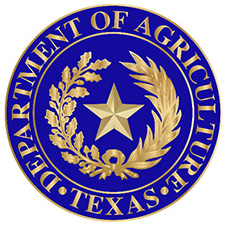Q&A: Yolanda Soto says Covid-19 helped boost the market for imperfect produce
The Covid-19 pandemic upended the food supply chain in 2020, but massive quantities of fresh fruits and vegetables from Mexico kept flowing into the border town of Nogales, Arizona. Not all of it made it to American tables, however, or even out of Nogales. Instead, as is the case every year, millions of pounds of misshapen or otherwise imperfect produce was diverted to the landfill. Despite the pandemic, Borderlands Food Rescue managed to keep up its longtime work of salvaging those less-than-perfect tomatoes, cucumbers, mangoes, and watermelons for people in need.
ERS report: Despite pandemic, U.S. food insecurity remained flat in 2020
One in 10 U.S. households were food insecure in 2020, the same level as a year earlier, the USDA’s Economic Research Service reported Wednesday. The flat rate of food insecurity provided evidence that government and charitable programs during the Covid-19 pandemic tempered a rise in hunger despite the deep recession.
IUCN Congress dispatch: A paradigm shift for the food system
In the face of climate change, biodiversity loss, and growing global food insecurity, conservationists, farmers, and policymakers called for a “paradigm shift” in global food production at the IUCN World Conservation Congress on Tuesday. To get there, they urged the expansion of agroecology as a way to build a food system that can help protect and restore the environment while feeding the world.
Today’s Quick Hits
Black farm workers sue: Six Black farmworkers from Mississippi sued Pitts Farms Partnership — one of the largest farms in the state — for discriminating against them in favor of white foreign workers, costing them thousands of dollars in unpaid wages and lost job opportunities. (Mississippi Center for Justice)
Increased drought assistance: In response to the severe drought conditions in the West and Great Plains, the USDA will help cover the cost of transporting feed for livestock that rely on grazing. (Farm Service Agency)
Biden gets tough with Big Meat: The Biden administration plans to take a tougher stance toward meatpacking companies it says are causing sticker shock at grocery stores. (Reuters)
Frying-fat diesel: Neste Oyj, the world’s biggest maker of renewable diesel, is looking to increase its sources of used cooking oil and discarded animal fats in North America. It currently buys cooking oil from 40,000 U.S. and Canadian restaurants. (Bloomberg)
Wild rice sues to stop pipeline: An Indian tribe granted legal status, or “personhood,” to wild rice, which then sued in a tribal court to block an oil pipeline. (High Country News)
Shape-shifting animals: New research finds that “[w]arm-blooded animals are changing their physiology to adapt to a hotter climate. This includes getting larger beaks, legs, and ears to better regulate their body temperature.” (The Guardian)











